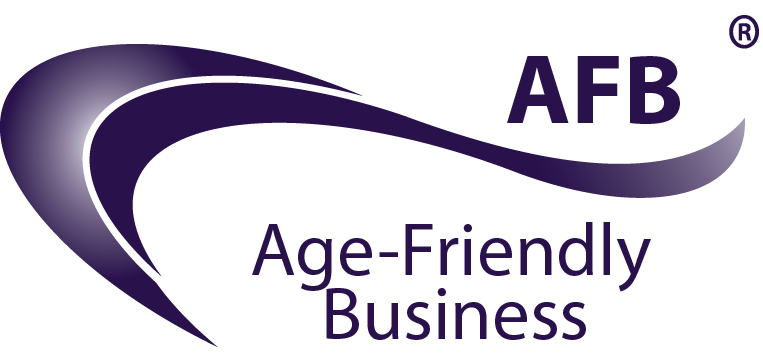
Summertime and the living aren’t always easy! We welcome that transition from the sometimes all too long cold, snowy, or rainy months. The first sign of those warm sunny days invites us to get out, bask in the sunshine, and restore that healthy vitamin D!
But when is it too much of a good thing, and what can we do when we overindulge?
We have all heard the tips and recommendations to take it slow, wear a hat, cover up with loose clothing that can breathe, avoid the sun during the hottest times of the day, interrupt sun exposure with time in the shade, and apply a good sunscreen. Nothing new here. So, what are the warning signs that we need to be aware of and what can we do when someone is in distress?
Seniors and The Sun
It takes energy for our bodies to regulate our temperature, and this extra demand can cause serious, significant, and even deadly stress for seniors. As we age, our ability to manage changes in temperatures can be compromised. One of the reasons for this is the reduced layer of subcutaneous fat just below our skin, which, among other things, helps us control our response to heat and cold. (i) Our progressively reduced ability to perspire also jeopardizes our ability to cope well in heat during our later years, as well as side-effects from chronic use of medications. Dr. Tim Takaro, professor of health sciences at Simon Fraser University suggests that the hypothalamus in the brain also plays a role in regulating the physiological response to heat and that this function is diminished as we get older.(ii) Taken in its entirety, over-exposure to heat and the sun (especially for older persons) can cause dehydration, heat exhaustion, and heat stroke.
Dehydration
When we release more fluids than we take in, we can become dehydrated. Symptoms include thirst, reduced urine production, elevated heart rate and lower blood pressure, reduction in tears, vomiting, muscle cramps, and light-headedness.(iii) Left untreated, dehydration can lead to heat exhaustion, heat stroke, and ultimately, death. Introduce fluids in frequent and small amounts, including water, clear broth, popsicles, and electrolyte replacements such as Powerade and Gatorade.
Heat Exhaustion
Dehydration, extended exposure to the sun and over-exertion can lead to heat exhaustion. In addition to the symptoms described for dehydration, heat exhaustion can also include profuse sweating or inability to sweat, confusion, fever up to 103 F, fainting, seizures, difficulty breathing, chest or abdominal pains. If any of these symptoms do not respond to the cessation of physical activity, cooling, and the re-introduction of fluids (as described with dehydration) it is important to seek immediate medical help.
Heat Stroke
Although there is no distinct and clear line between heat exhaustion and heat stroke, the presentation of cognitive challenges such as confusion, lethargy, seizures and coma – as well as a body temperature in excess of 103 F can often indicate heat stroke. Delay in treatment can lead to organ damage and death in more than 50% of the cases.(iv)
Dr. Takaro cautions that staying cool during a summer heat wave is not a luxury – it is a health issue.(v) He reminds us of the tragic deaths of more than 10,000 people during the extended heat wave in France in 2003.
Be aware of your environments. Check on people you know who may not be able to get relief, and make sure they have enough fluids, access to cool compresses, have regular contact, and some respite from the heat for periods throughout the day.
With some foresight and caring, we can ensure that the living is easy for everyone this summertime!
Rhonda Latreille, MBA, CPCA
Founder & CEO
Age-Friendly Business
(i) https://www.comfortkeepers.ca/summer-safety-for-seniors-and-elders/
(ii) Lisa Johnson, CBC News, June 25, 2015, “B.C. heat wave: Why heat is more dangerous for seniors.”
(iii) https://www.medicinenet.com/dehydration_pictures_slideshow/article.htm
(iv) https://www.medicinenet.com/heat_exhaustion/article.htm#what_is_the_difference_between_heat_exhaustion_and_heat_stroke
(v) Lisa Johnson, CBC News, June 25, 2015, “B.C. heat wave: Why heat is more dangerous for seniors.”
UV Exposure
Did you know: It is estimated that 20% of cataracts are caused by UV exposure, and that UV exposure can also cause Age-Related Macular Degeneration, the leading cause of blindness in North America.
Source: National Institutes of Health
A Helping Hand
 “I don’t want to live in the kind of world where we don’t look out for each other. Not just the people that are close to us, but anybody who needs a helping hand. I can’t change the way anybody else thinks, or what they choose to do, but I can do my bit.”
“I don’t want to live in the kind of world where we don’t look out for each other. Not just the people that are close to us, but anybody who needs a helping hand. I can’t change the way anybody else thinks, or what they choose to do, but I can do my bit.”
Charles de Lint


0 Comments